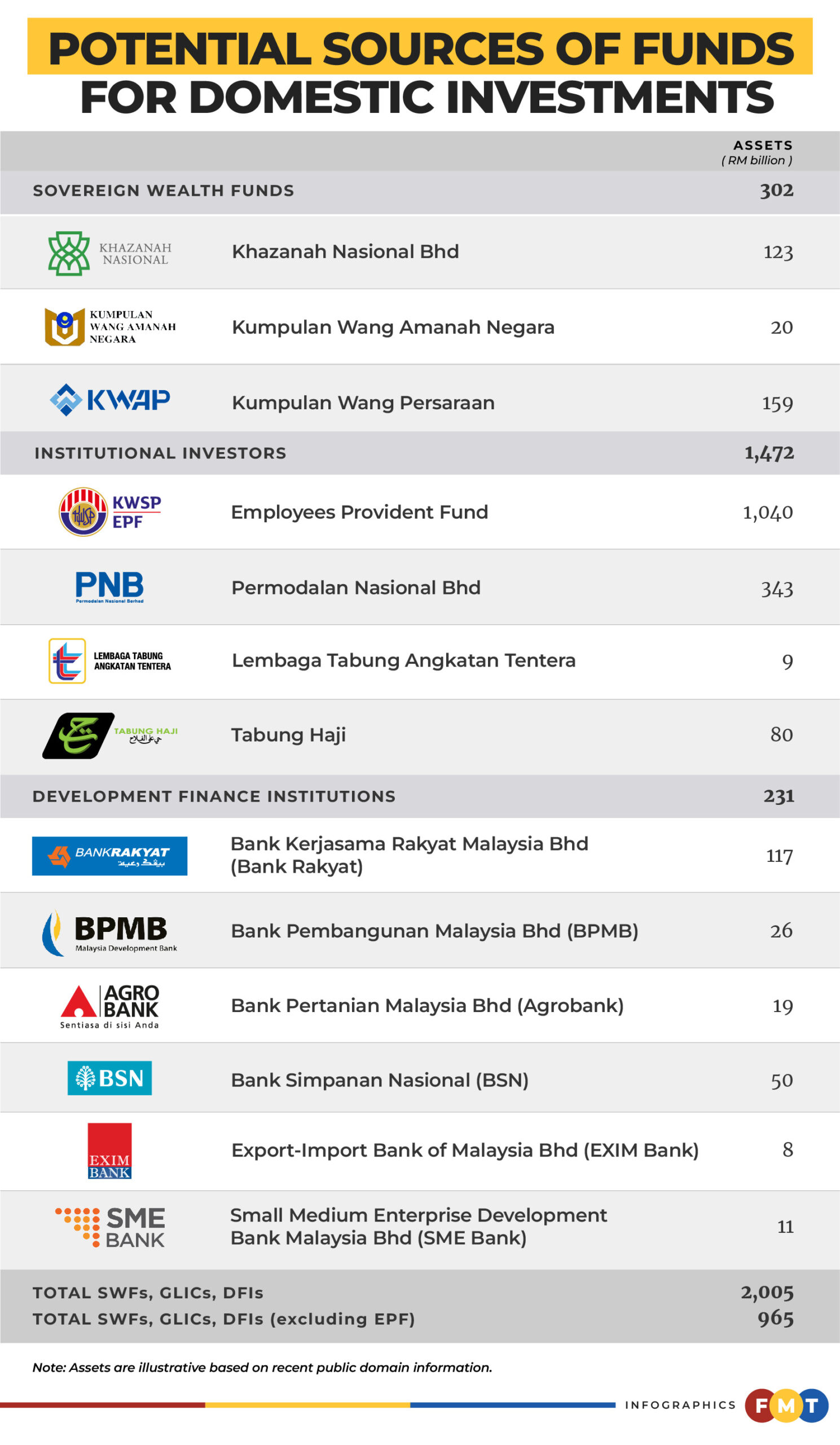
Faced with continuing weakness in global markets, domestic direct investment (DDI) must be a priority for the government.
The pragmatic approach of Prime Minister Anwar Ibrahim in attracting the Tesla regional headquarters shows that cutting restrictions for investment has an immediate impact.
A similar bonfire of regulations for DDI can free up market space, reduce crowding-out and raise crowding-in for private companies. The dominance of GLCs has been damaging for private companies and privatisation of thousands of GLC subsidiaries is needed.
Above all investments must be market-driven, not driven by government planning. Otherwise policy designers who have never been involved in industrial investments give us “boys-toys, sunshine and windmills” based on fictional narratives rather than firm reality.
From the 1960s domestic investment grew very strongly, especially during the more liberal economic period of the 1980s, until the Asian Financial Crisis when fixed investment was around 35% of GDP.

After that it has been less than 25% of GDP and only around 22% during the Covid-19 period. This is below the average of around 35% for upper middle income countries and is a long-term trend.
To reverse this, DDI strategies must create the market space and conditions to promote private investments based on sound commercial decisions.
Factors holding back large local companies as well as blockages stopping SME investment and scale-up must be clearly identified.
The overall investment ecosystem in Malaysia is not positive and access to capital and markets is still restricted.
GLCs have crowded out the private sector by taking preferential market share and GLICs have also preferred GLC-focused investments. This closes down space for access and finance of private investment.
Another factor is the fear of expropriation of successful investments. Private companies have defensive, risk averse strategies in Malaysia for fear they will face hostile takeovers.
Many are cautious even of soft loans or development finance for fear of takeover in default. Recently even big names have moved overseas to avoid this.
The pull of overseas markets is also strong with better investment returns in other countries. The Malaysian market is small and overseas markets in Vietnam and Indonesia are larger and growing faster.
This is one reason why net FDI trend has been in decline since 2016 as more investments go out than come into Malaysia. The last two years saw an upturn but the decline is still there.
DDI will be the focus of the National Investment Council (MPN) and the government-linked investment corporations (GLICs) will lead on this but the development finance institutions (DFIs) and development corporations such as the Halal Development Corporation (HDC) and Malaysia Debt Ventures (MDV) should also play a role.
For now apart from EPF, many of the GLICs are too small in terms of assets and some are underperforming. They can be combined into a Malaysian superfund to promote DDI and use the proceeds for social protection.
The six development banks, namely Bank Rakyat, Bank Pembangunan, AgroBank, Bank Simpanan, EXIM Bank and SME Bank should also be restructured to provide better focus for the DDI initiatives. This was proposed under the previous PH government by then finance minister Lim Guan Eng.
The combined assets of the GLICs and DFIs is around RM2 trillion. Excluding EPF, a combined fund of around RM965 billion could be created. With other funds and privatisation proceeds a superfund of RM1.4 trillion would be possible.
Finally since DDI is a structural issue it should be placed in the economy ministry under Rafizi Ramli.
This will allow the investment, trade and industry ministry to focus on the trade crunch and target new FDI initiatives without taking on new work in the domestic market. - FMT
The views expressed are those of the writer and do not necessarily reflect those of MMKtT.


No comments:
Post a Comment
Note: Only a member of this blog may post a comment.